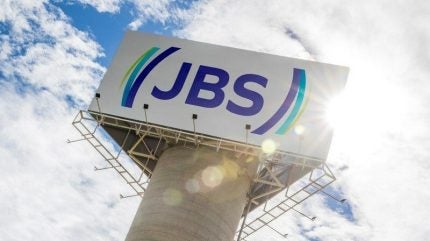
Brazil’s JBS plans to build two meat factories in Vietnam with a total investment of $100m.
Beef, pork and poultry products will be produced at the pair of sites, once operational, although the world’s largest meat processor said the facilities will “mainly use raw materials imported from Brazil”.
The owner of global protein brands such as Friboi, Seara and Pilgrim’s Pride added in a statement that the Vietnamese plants will supply the local market and others in South-east Asia.
JBS said the twin projects are expected to create around 500 jobs, with the production sites to be built in two phases.
Under the first, a facility will be constructed in Khu công nghiệp Nam Đình Vũ located in the city of Hải Phòng in north-east Vietnam. It will include a logistics center with storage facilities, along with “pre-processing, cutting and packaging activities”.
As part of a memorandum of understanding (MoU) signed with the Vietnamese government, the second site will be built in the south of the country in an unspecified location. It will be similar in operation to the first, with construction likely to start two years after production begins at the initial plant.
Investment Monitor has asked JBS to confirm what production presence the meat packer currently has in Vietnam and the wider South-east Asia region, and for an idea of when the projects are due to get off the ground.
JBS said in the statement that the two Vietnamese plants are intended to “expand its presence in the region” and also to “strengthen its position in the global market”.
Renato Costa, the president of JBS’s Friboi business, said: “The new factories in Vietnam will not only be an expansion of production capacity, but an investment with purpose: to generate value for the local economy, create qualified jobs, contributing to food security throughout South-east Asia.
“We are investing in the future, with a focus on innovation, sustainability and development.”
JBS has recently announced other global investments to expand its capacity and reach.
In February, $200m was earmarked for US beef production in the states of Texas and Colorado for plants located in Cactus and Greeley.
A major investment was also announced at the back end of last year for Nigeria. JBS said it would spend $2.5bn on six meat-processing facilities in the African country over five years – three for poultry, two for beef and one for pork.
Also last year, JBS announced the business would quadruple production in Saudi Arabia with a new chicken facility in Jeddah. The company also has a processing unit in the city of Dammam.
And on the branded front, but outside of animal-based proteins, it emerged earlier this month that JBS-owned Vivera had agreed to acquire The Vegetarian Butcher alternative-meat business of Unilever.
On Vietnam, Costa added: “The partnership between JBS, the Vietnamese government and our local partners represents an essential strategic step for our geographic diversification.
“This move not only strengthens our ability to serve the local market, but also expands our global presence, creating a robust and sustainable production chain that positions us even more competitively on the international stage.”



